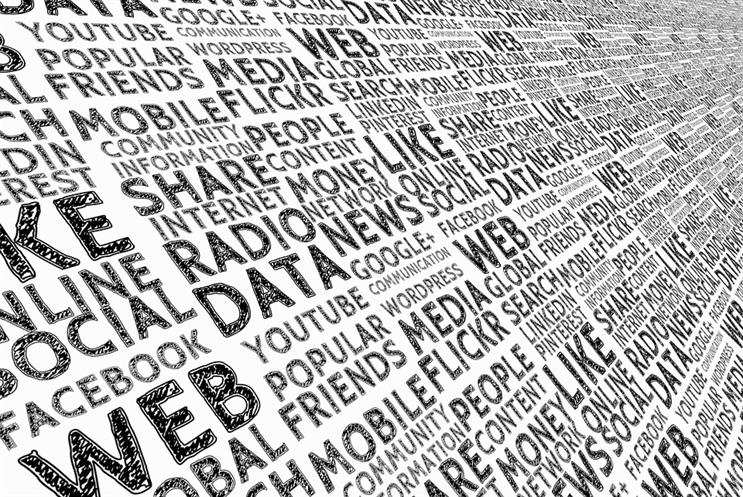Google recently announced that Chrome users will be able to disable third-party cookie-tracking. Call me dramatic, but I see this as potentially being the beginning of the end for the golden age of the internet.
Without the ability to perform proper measurement, advertisers and publishers will suffer as the value of inventory drops. Companies whose business model relies on ad sales will fall apart and companies that make money by serving ads will follow suit.
I see Google’s changes to tracking as part of a wider trend among all the major internet companies: that is, one of increasing isolationism. So-called "walled gardens", private browsers, a lack of standardisation – these are bad for internet advertising and therefore bad for the internet.
How performance marketing helped to build the internet
Digital media was once scoffed at as vastly inferior to the likes of TV and out-of-home. But performance marketing showed the industry how to use data in such a way as to achieve audience targeting and personalisation that was completely unimaginable in the pre-digital era.
Global internet advertising spend increased from roughly . The remarkable growth of digital advertising has been the lifeblood of the internet, benefiting publishers, social network and ecommerce companies – but none has benefited more than Google and Facebook, whose platforms have come to dominate the digital advertising industry.
And now, the very same companies that were pioneers in the performance marketing revolution are on a path towards destroying the internet they helped to create. The most recent step in this direction is Google’s move to eradicate cookie-based tracking. But there have been other moments in recent history too.
The trend towards isolationism in the major internet companies
Google and Facebook, likewise Apple and Amazon, are walled gardens when it comes to data. Data generated on these platforms is the property of the platform, rather than the user. Data transfer is constricted and thus marketing-mix analytics is greatly hampered.
The majority of the data supply is controlled by a small minority of companies that may be strategic in what data they share with third parties.
Google’s changes to DoubleClick user IDs is forcing advertisers . Last year, Google removed media buyers’ ability to use the DoubleClick ID in its data-transfer service, thus seriously hampering their ability for cross-platform measurement.
Facebook has removed third-party data sources for audience targeting. Neither platform enables advertisers to independently measure performance or to create a single-source attribution model – ie passively measuring activity across all platforms and devices at the unique user level.
It’s not just about attribution. Data can be used to enrich and improve every facet of a marketing effort, from audience strategy to creative content. For example, from a conversion rate optimisation perspective, if you can’t keep cookies for more than seven days (as is now being suggested), user experience is going to be negatively affected and meaningful testing will become almost impossible.
An open approach to data promotes innovation. Take Google Ads. Google's search advertising platform grew so successfully in part because it encouraged its users to contribute to its development. Brainlabs grew in part because of how successfully it took advantage of this opportunity for innovation. That's how a healthy ecosystem should work.
By decreasing user access to data, Google inhibits members of the ecosystem from developing new software and marketing strategies/tactics. Users of Google Ads will thus increasingly rely on Google’s automation to execute campaigns, outsourcing decision-making to Google’s artificial intelligence.
An open internet is a strong internet
Google and Facebook’s dominance is fine if they are willing to share their data and sustain a sufficient degree of freedom for advertisers. However, the current trajectory seems to be in the wrong direction – ie more control for the platforms, less control for advertisers.
We have reached a point where we need a : something to link together the heterogeneous platforms that make up the digital advertising ecosystem. In the case of attribution, there are a number of ongoing attempts to create a universal user ID system, such as , an industry group launched partly in response to Google’ changes to DoubleClick user IDs.
But this doesn’t get at the wider problem. Underlying Google’s "privacy pivot" seems to be a belief that it no longer needs third-party measurement to sustain the value of its advertising inventory.
Likewise for Facebook and Amazon. That is hubris if ever I saw it. Digital media is not like TV and out-of-home, where advertisers accept the trade-off between reach and measurability. The reason advertisers value digital is precisely because of its measurability.
What we need is for those who have profited most from the growth of digital advertising to recognise why and how that growth has occurred. When they truly acknowledge the underlying factors behind their own success – that is, creating an environment in which the entire advertising economy has the freedom and power to improve itself – they will surely rethink a number of decisions made in the past few years.
A new, GDPR-compliant industry standard for tracking is needed. Whether that involves fingerprinting, data management platform-like solutions, enhanced first-party data through required registration for access, , a combination of all of these, or something entirely new… only time will tell.
The market will correct itself, if the major internet companies don’t. Advertisers will not be willing to spend as much, if they aren’t able to measure the value of their adspend. Platform revenues will sharply drop and changes will occur until things get back to how they were. Nobody wants to go through all of that, though.
Let’s nip this in the bud now for the good of the industry.
Daniel Gilbert is founder and chief executive of Brainlabs



